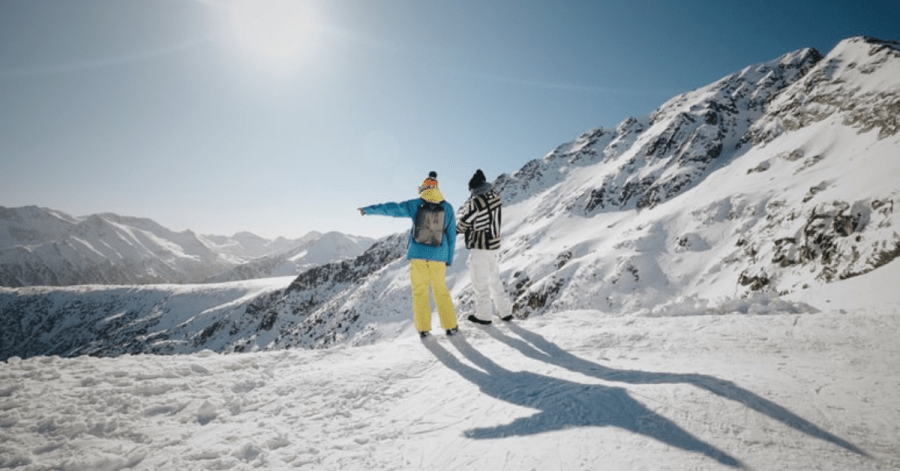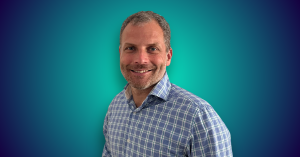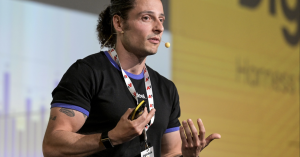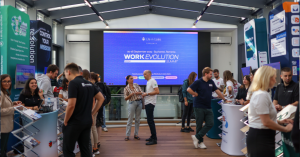As the end of the year is approaching, and the winter mood is setting in, it is becoming harder to stick to the traditional 9 to 5 workday. Hybrid work gives us all the flexibility of location, so it may be the perfect time for some to experiment with the life of digital nomads.
One of the hottest digital nomads destinations in SEE, especially during wintertime is Bansko, a small tourist town located in the Pirin mountain in Southwestern Bulgaria.
With the goal to make a more practical guide for digital nomads in Bansko, we reached out to Matthias Zeitler, co-founder of Coworking Bansko, the first and the biggest coworking space in town which started the whole Bansko digital nomads movement.
How does a digital nomads ecosystem differ from startup ecosystems and what does the mapping of such an ecosystem look like? Find out what we learned from the person who made Bansko a digital nomad hub.
From a tourist site to a digital nomads hub
A passionate community-builder, entrepreneur, and computer science specialist, Zeitler started Coworking Bansko back in 2016, only a couple of months after visiting Bulgaria for the first time.
At that time, Zeitler was a digital nomad himself, living in Strasburg, Austria. Normally, he started looking for a place where taxes were lower. A fellow digital nomad attracted his attention to Bulgaria where the tax rate is 10% flat which convinced Zeitler to visit for the summer.
After some time spent in the town, he recognized that there were great conditions for Bansko to become a hub for digital nomads, and since there wasn’t a community yet, he embraced this mission as his own. And that is how Bansko Coworking opened its doors.
“To me, this was a way to get like-minded people to Bankso, because otherwise who would I be hanging out and playing board games with,” he jokes.
Initially, the coworking space started very small and had around 10 members, coming mostly from the personal network of Zeitler. Over the years more and more people came, turning Bansko into one of the most interesting digital locations in Europe.
Right now Coworking Bansko averages about 100 members who usually stay between 2 and 3 months. “We are building something very vibrant and exciting. Our members travel a lot, they visit new places and then come back to Bansko with new ideas and stories,” Zeitler explains. According to him the growth of Bansko as a digital nomad hub has a lot to do with the overall development of the Bulgarian ecosystem – with Sofia turning into an important European IT hub and improving road infrastructure and connectivity.
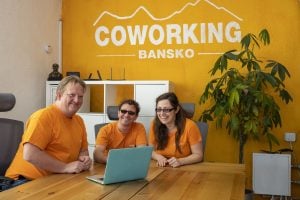
An ecosystem vs а digital nomad hub
“The markup of our members is a little bit different from the markup of the average coworking space in Sofia. Most of our tenants are freelancers and e-commerce entrepreneurs who travel year-round. They don’t settle because that is the essence of being a digital nomad. But longer-term connections are forming and a lot of the digital nomads started buying apartments in the region. Around 40 people have moved permanently in Bansko since we started 5 years ago,” Zeitler highlights.
When it comes to the so-called ecosystem enablers, Matthias shares that they are also different from the typical driving stakeholders in one startup ecosystem. For example, he explains that the main role of enablers in one digital nomads hub is to make life easier for the nomads.
“It really takes a village to make life comfortable for digital nomads,” he says. There are some businesses in town that really benefit from the digital nomads community as they have tailored their offerings to match the lifestyle and the needs of the community.
“The first year we opened we had some vegan members and it was difficult to keep them alive because there weren’t many vegan options in Bansko. Since then we have convinced a lot of the restaurants to start offering vegan and vegetarian meals. We talked with the supermarkets to stock more vegan meat and cheese alternatives. In 2016 there weren’t many long-term rentals in Bansko either, so we talked with a lot of rental places and travel agencies,” he explains.
Bansko Digital Nomads Hub Mapping 2021
Explore the best places in town for living, working, eating, and networking.

